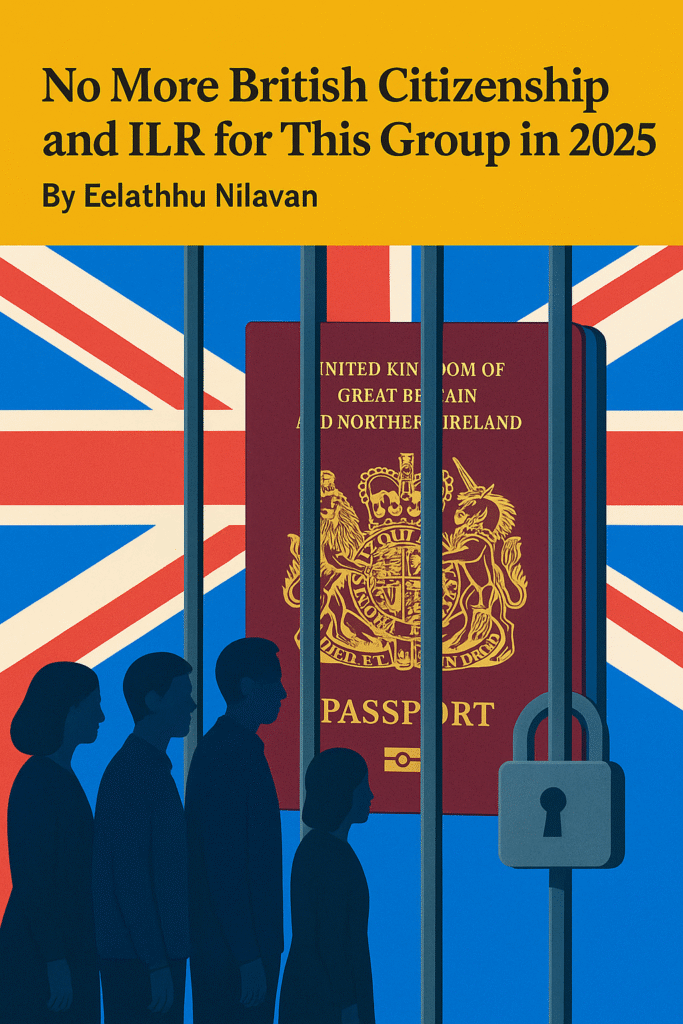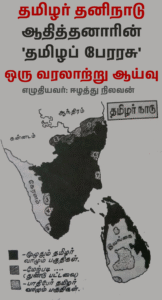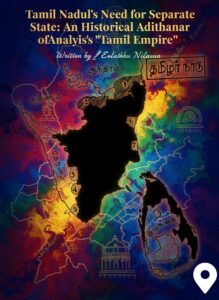✧. Executive summary
In 2025, the UK government introduced a package of immigration policy changes that substantially affect routes to Indefinite Leave to Remain (ILR) and British citizenship for many long‑term migrants. The most significant proposals include extending the standard qualifying period for settlement from five to ten years for many Points‑Based System migrants, and tightening “good character” guidance that states applications involving previous illegal entry to the UK will normally be refused from 10 February 2025 onwards. This article explains the legal background, who is affected, the current situation and political context, likely consequences, and practical recommendations for individuals and advisers.

✦. Background: what changed in 2025
In May 2025, the Home Office published the White Paper Restoring Control over the Immigration System, setting out government intentions to reduce net migration and to reshape routes to settlement and citizenship. Among the headline proposals is a change to extend the ordinary qualifying period for ILR from five to ten years for many migrants on the Points‑Based System. At the same time, Home Office nationality guidance was updated in February 2025 to make clear that applications made after 10 February 2025 that involve previous illegal entry to the UK will “normally” be refused on good‑character grounds.
✦. Legal and policy detail (plain language)
• ILR: proposed 10‑year standard route — Under the White Paper, the default period before settlement for many skilled and work migrants would move from five to ten years. The White Paper also mentions the concept of an “earned settlement” route (allowing possible accelerated settlement for individuals making exceptional economic or social contributions), but rules and implementation details remain undefined.
• Good character and illegal entry — The Home Office updated its nationality guidance to require caseworkers to normally refuse naturalisation where the applicant previously entered the UK illegally. The change applies to applications made after 10 February 2025 and does not depend only on how long ago the entry occurred.
• Exemptions and protected groups — The government has explicitly protected certain categories from the longer ILR route: partners of British citizens and victims of domestic abuse retain a five‑year route. People with EU Settlement Scheme (EUSS) status are treated under existing commitments and generally not covered by the proposed lengthening in the White Paper.
✦. Who is most affected?
• Skilled Worker visa holders and their dependants: If implemented as proposed, these groups would face roughly double the time to settlement unless they qualify for exceptional “earned” routes.
• Hong Kong BN(O) and certain cohort visa holders: Depending on the final drafting and whether measures apply retrospectively, BN(O) holders could face delays or uncertainty.
• Refugees or those who entered by irregular routes: Even where refugees have permission to remain or have been granted asylum, the updated good‑character guidance means many could be denied naturalisation if their application is made after the specified date and their initial entry involved an irregular or dangerous route.
• Employers and universities: Longer times to settlement change recruitment calculus, retention incentives, and long‑term workforce planning.
✦. Current situation (analysis as of 10 Sep 2025)
• Policy versus law: The White Paper is a policy statement — it does not by itself change law. Draft changes to the Immigration Rules and secondary guidance are needed before they have legal effect. That means timing and detail are not final; however, several measures (for example, updated nationality guidance) have already been published and are in force for decision‑making.
• Immediate practical effect: The good‑character change of February 2025 is already being applied by caseworkers to naturalisation decisions where illegal entry is recorded. The 10‑year ILR proposal is in the policy pipeline and has created uncertainty across many visa cohorts.
• Legal challenges and political debate: The nationality guidance has attracted legal challenges and criticism from refugee organisations and some legal practitioners, who argue the policy may conflict with international protections and fairness principles. Meanwhile, the government defends the steps as necessary to control irregular migration and to maintain public confidence.
• Uncertainty over retroactivity: A central concern is whether lengthened settlement periods will apply to people already in the UK or only to new entrants. The absence of clear transitional rules is causing high anxiety among those close to qualifying for ILR under the existing five‑year rules.
✦. Implications — individual and societal
• For migrants: Many face extended insecurity, reduced rights for a longer period, and greater costs (repeated visa renewals, application fees, English tests, life in the UK without permanent status). Refugees who contributed to UK communities may be blocked from full citizenship despite years of residence.
• For employers and sectors: Employers reliant on international talent (NHS, tech, higher education, agriculture, hospitality) may find recruitment and retention harder. Some organisations may restructure hiring or invest more in UK training to rely less on migrant workers.
• For social cohesion: Policies that create a permanent underclass of long‑term residents without a path to citizenship risk damaging integration, civic participation and the sense of belonging that promotes stability.
✦. Practical recommendations (what people should do now)
• Seek tailored legal advice — Complex facts matter (visa type, when you arrived, whether you have any adverse records). Get advice from a regulated immigration adviser or barrister as soon as possible.
• Check timing of any application — If you or family members are close to qualifying for ILR or citizenship under current rules, consider seeking professional help to prepare and (if appropriate) submit earlier rather than later, mindful of legal and ethical obligations.
• Document your residence and character — Keep thorough records of employment, tax, volunteering, community involvement, and any supporting evidence that demonstrates good character and contribution.
• Understand exemptions — If you are a partner of a British citizen, a victim of domestic abuse, or protected under the EUSS, assess whether the exemptions apply to you.
• Employer actions — Employers should review workforce plans, monitor legislative changes, and provide immigration support to critical staff. Consider contingency plans for recruitment and training.
✦. Likely legal and political pathways
• Further statutory changes: To make the White Paper measures legally effective, the Home Office must amend the Immigration Rules and publish formal guidance and regulations. Parliamentary scrutiny will follow.
• Court challenges: Expect continued litigation focused on the good‑character guidance (including proportionality and compliance with international obligations), and casework decisions may be subject to judicial review.
• Policy refinement: Pressure from employers, universities, legal bodies, and charities could cause the government to clarify exemptions, transitional protections, or the operation of any “earned settlement” route.
✦. Conclusion:
The 2025 package of UK immigration changes represents a material shift in how the UK approaches settlement and naturalisation. While some measures are already being applied (notably the good‑character guidance on illegal entry), others remain proposals pending legal changes. Individuals affected should take proactive steps — obtain legal advice, prepare documentary evidence, and monitor official guidance — while employers and civil society should plan for the operational and community impacts.

Written by Eelaththu Nilavan
UK & International Policy Analyst | Specialist in Immigration, Citizenship, and Human Rights
2025 ஆம் ஆண்டில் ஒரு குறிப்பிட்டக் குழுவினருக்கு இனி பிரித்தானிய குடியுரிமை மற்றும் ILR இல்லை.




1 thought on “No More British Citizenship And ILR For This Group in 2025”